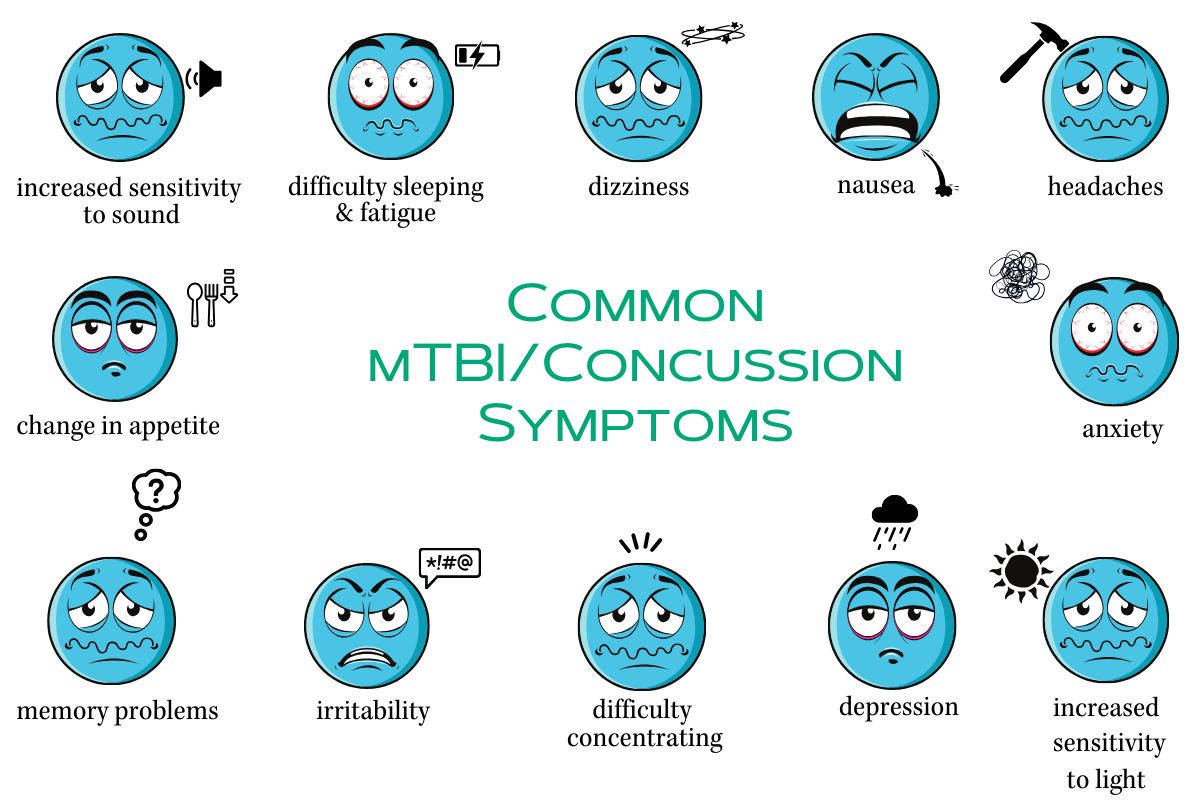Your Go-To-Source™ for mTBI/Concussion Diagnostics & Rehab
Not all concussion symptoms present immediately. The delayed onset of symptoms in some cases can be attributed to several factors including/but not limited to:
Concealed Initial Symptoms: Some individuals may experience mild symptoms immediately after the injury, but due to adrenaline or shock, they may not recognize or report them. As the initial shock wears off, symptoms become more apparent.
Cumulative Effects: The effects of concussion can accumulate over time. Initially, the brain may compensate for the injury, but as metabolic and physiological changes progress, symptoms may gradually emerge or worsen.
Delayed Onset of Inflammation: Inflammation is part of the brain's response to injury, and it can take time to develop fully. As inflammation increases, symptoms such as headache, dizziness, and cognitive difficulties may become more pronounced.
Secondary Injury Processes: Concussion can trigger secondary injury processes, such as neurotransmitter imbalance, oxidative stress, and disruptions in cerebral blood flow. These processes may evolve gradually and contribute to delayed symptom onset.
Metabolic Changes: Concussion disrupts metabolic processes in the brain, affecting energy production and neurotransmitter function. These metabolic changes can lead to delayed symptom presentation as the brain's ability to compensate becomes overwhelmed.
Psychological Factors: Emotional reactions to the injury, such as denial, fear, or anxiety, can influence symptom perception and reporting. Some individuals may suppress symptoms initially but experience them later as psychological defenses weaken.
Subtle Brain Injury: In some cases, the initial injury may be relatively mild or subtle, leading to delayed symptom onset. Even minor disruptions in brain function can manifest as symptoms over time as the injury becomes more evident.
Masking by External Factors: External factors such as medication use, distractions, or competing stressors may mask concussion symptoms initially. Once these factors diminish or resolve, concussion symptoms may become more apparent.
Underlying Vulnerabilities: Individuals with pre-existing medical conditions, such as migraine disorders, mental health issues, or neurological disorders, may be more susceptible to delayed symptom onset due to the interplay between their existing conditions and the effects of concussion.
Monitoring individuals that may have suffered a head injury due to a jolt or direct impact to the head after accidents for symptoms is imperative. And, seeking medical attention promptly if they do present is crucial in any case of a suspected concussion—as early intervention can help manage symptoms and prevent complications from occuring,
Common mTBI/Concussion Symptoms to Recognize
Monitoring for symptoms and seeking medical attention promptly is crucial in any case of a suspected concussion. Early intervention can help manage symptoms and prevent complications in addition to assisting with benchmarking patient progress through their healing journey.



